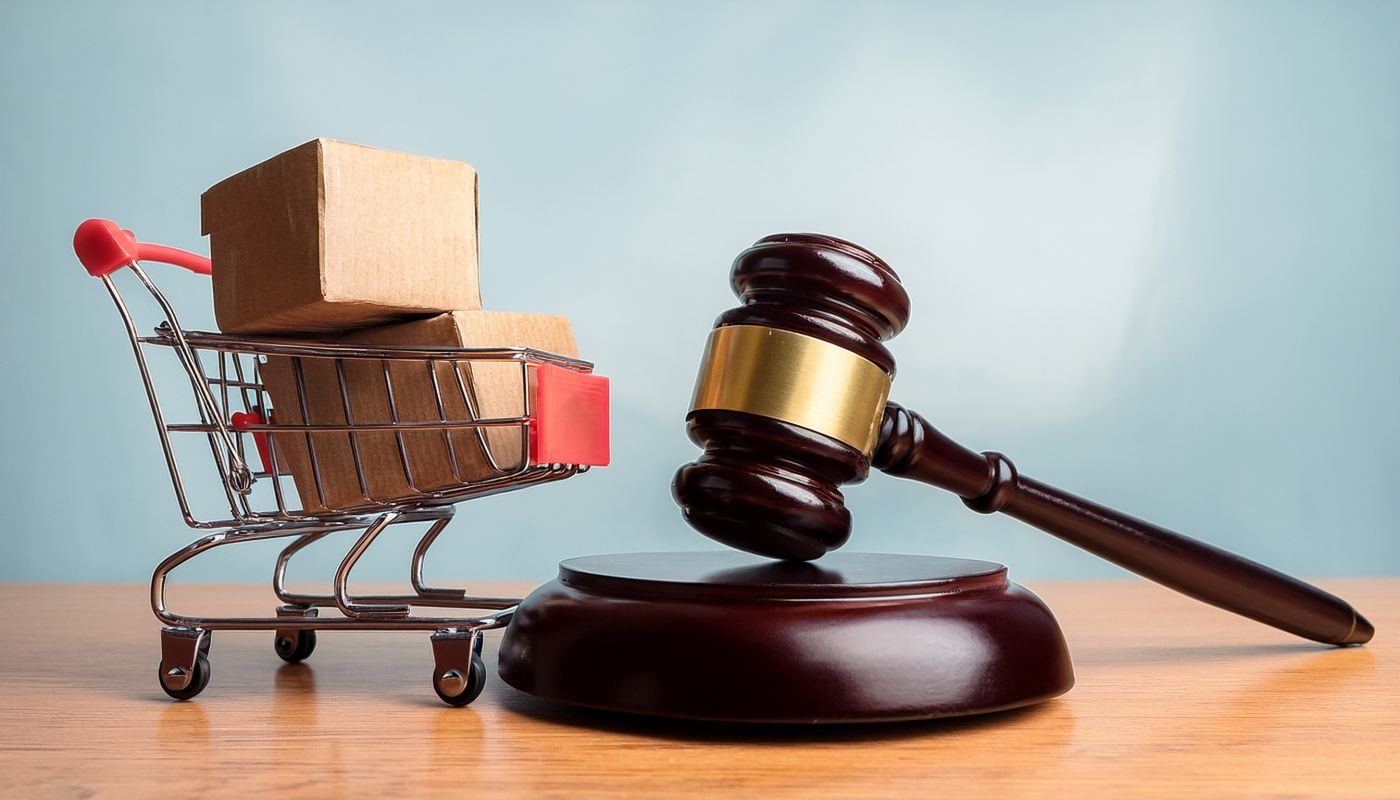
Your personal information is more vulnerable than ever before. Whether it’s through a simple online purchase, signing up for a service, or even just browsing social media, your data is being collected, stored, and shared in ways that can be difficult to fully understand.
This can be worrying, especially when a data breach occurs, exposing sensitive personal information like Social Security numbers, credit card details, medical records, and more. In such situations, having a dependable lawyer with experience in civil litigation can be a game-changer. At Scott Hirsch Law Group, PLLC we can help.
What Are Data Privacy Rights?
Data privacy rights refer to the protection and control you have over your personal information. In the United States, these rights vary depending on where you live, the type of information being collected, and the entity collecting it. Generally, you have the right to control how your data is collected, used, and shared.
One of the key components of data privacy is the idea that individuals should have access to the information companies hold about them. This includes the right to request a copy of your data and, in some cases, the ability to have it deleted or corrected. These rights aim to protect your privacy and safeguard you from identity theft, fraud, and other malicious activities.
What Happens in the Event of a Data Breach?
A data breach occurs when an unauthorized party gains access to personal information stored by a company, government entity, or other organization. This information is often sensitive, such as your name, contact details, financial data, or even medical records. When a breach happens, the consequences can be severe, from financial loss to identity theft and other forms of fraud.
As a consumer, you may be wondering what your options are when this occurs. Fortunately, there are several laws and regulations designed to protect you and give you recourse. Depending on the nature of the breach, you may be entitled to compensation for damages caused by the exposure of your personal data.
According to the U.S. Department of Justice, data breaches have steadily increased over the years, with a notable rise in breaches involving healthcare organizations, financial institutions, and large corporations. In fact, the department notes that over 4,000 data breaches were reported in the U.S. in 2022 alone.
Federal and State Protections
On the federal level, the U.S. government has enacted various laws to safeguard consumer data. The Federal Trade Commission enforces a wide array of consumer protection laws, including the Fair Credit Reporting Act and the Gramm-Leach-Bliley Act, which require companies to implement safeguards to protect your data and to notify you of breaches.
Additionally, several states have their own laws that provide further protections. For example, Florida’s Florida Information Protection Act requires businesses to notify consumers within 30 days if their personal data has been exposed in a breach. FIPA also mandates that companies take steps to mitigate the risks that arise after a breach, such as offering credit monitoring.
Furthermore, the Health Insurance Portability and Accountability Act (HIPAA) regulates the privacy and security of health data. If a healthcare provider or insurance company suffers a breach, HIPAA requires them to notify affected individuals and take action to protect their information.
How a Data Breach Lawyer Can Help
When a data breach occurs, you may feel overwhelmed by the process of figuring out what happened, what was stolen, and what to do next. This is where an experienced civil litigation lawyer can make a significant difference. With their help, you can better understand your rights, the laws that protect you, and what steps to take in order to seek compensation or justice.
Investigating the breach: A good lawyer will begin by investigating the details of the data breach. They’ll work to identify how the breach occurred, what information was exposed, and who is responsible for the failure to protect your data. They may also work with experts in cybersecurity to uncover vulnerabilities and gather evidence for a potential civil litigation case.
Filing a civil lawsuit: If you’ve suffered financial harm or other damages as a result of the breach, you may have the right to file a civil lawsuit against the responsible party. In civil litigation, the goal is to prove that the defendant was negligent in safeguarding your data and that this negligence led to the harm you suffered. The litigation process can be lengthy and intricate, but a lawyer with experience in data privacy cases can help guide you through every step.
Pursuing compensation: You may be entitled to compensation for damages caused by the breach. These can include financial losses, identity theft, emotional distress, and other harms. A skilled attorney will help you calculate the damages you’re owed and will fight to recover compensation from the at-fault party. In some cases, the company responsible for the breach may offer settlement compensation, but you should always consult with an attorney before agreeing to any offers.
Class action lawsuits: In many cases, a data breach affects not just one individual, but many. If you’re part of a large group of individuals whose data was compromised, your attorney may advise you to join or initiate a class action lawsuit. This can be a powerful way to hold a company accountable and to assure that victims of the breach have their day in court.
Civil Litigation and Data Breaches
Civil litigation is the legal process in which individuals or entities pursue compensation for harms or losses caused by the negligence or misconduct of another party. Data breach cases often involve civil litigation because they stem from a failure to protect consumers’ personal data.
In a civil litigation case involving a data breach, the plaintiff (you, the person whose data was breached) will need to demonstrate that the company or entity responsible failed to follow proper procedures or did not exercise reasonable care in protecting your information.
Florida residents who have suffered from data breaches should consider reaching out to a lawyer experienced in civil litigation. Your lawyer can help determine whether you have grounds to file a lawsuit based on the damages you’ve incurred and guide you through the entire process.
Civil litigation can be a complicated process, but having a dependable attorney who understands the intricacies of data privacy law is crucial in seeking the justice and compensation you deserve.
Data Security Practices for Companies
While the responsibility of protecting consumer data falls on the shoulders of businesses, there are steps companies can take to prevent breaches from occurring in the first place. Data security practices include encryption, firewalls, secure storage, and regular monitoring for vulnerabilities.
Businesses also need to implement protocols for quickly detecting and responding to any breach once it happens. Florida businesses should prioritize the protection of their customers' data to avoid not only legal liability but also damage to their reputation and trust.
A company that takes data privacy seriously and invests in cybersecurity measures can significantly reduce the risk of a data breach and minimize the impact if one were to occur.
What to Do If You’ve Been Affected by a Data Breach
If you’ve been the victim of a data breach, here are some steps to take:
Review notifications: If you receive a notification about a data breach, carefully read the details and assess whether your information was affected.
Monitor your financial accounts: Keep an eye on your bank and credit card statements for any unauthorized transactions.
Consider credit monitoring: Many companies that suffer a data breach will offer affected individuals free credit monitoring services. This can help you detect any suspicious activity on your credit reports early on.
File a complaint: If you believe your personal data has been compromised, you can file a complaint with the company that was breached, the Federal Trade Commission (FTC), or the Florida Attorney General’s office.
Consult with an attorney: A lawyer with experience in civil litigation and data privacy laws can provide you with valuable legal advice, help you understand your rights, and determine whether pursuing a lawsuit is appropriate.
A Relentless Lawyer Makes a Difference
Having a dependable lawyer on your side can make a significant difference in a data breach case. In Florida, data breach cases can involve various layers of civil litigation, including class action lawsuits, individual claims for damages, and potential violations of state and federal privacy laws.
A lawyer who is relentless in advocating for your rights can assure that the legal process is handled efficiently and that you receive the compensation you deserve. In cases of data breaches, there’s often a need for fast action.
In some situations, companies may try to downplay the extent of the breach or settle quickly to avoid the full consequences of their actions. A tenacious lawyer will work tirelessly to hold the responsible parties accountable, so you don’t have to traverse the legal maze on your own.
Data privacy is a critical issue in today’s digital society, and understanding your rights is essential. In the event of a data breach, you have legal options that can help you recover damages and protect your future.
Whether you're dealing with a small-scale breach or a large-scale corporate failure, having a lawyer experienced in civil litigation can make a significant impact on your case. From investigation to settlement or trial, a dependable lawyer will advocate on your behalf every step of the way, helping you protect your personal information and seek justice.
Contact Us Today
Remember, if you live in Coconut Creek, Florida, or the surrounding areas, and believe your personal data has been compromised, you don’t have to go through this alone. Reach out to an attorney who works in data privacy and civil litigation, and take the necessary steps to protect yourself. Call Scott Hirsch Law Group, PLLC for more information today.



